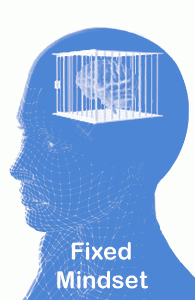The first of many essays written to tackle the question “Why aren’t more women in science?” featured in Ceci and Williams book of the same name is by Virginia Valian, a distinguished professor and psychologist. She titles her work “Women at the Top in Science- and Elsewhere” because most of it discusses why women aren’t at the “top” of any field, science included. While exploring the theory that women are simply less talented than men in STEM (Science, Technology, Engineering, and Mathematics) fields, she brings up two fascinating points of view, called the incremental theory and entity theory. Incremental theorists believe that people’s abilities can be bettered through practice and hard work, while entity theorists think abilities are innate and unchanging.
These theories create a convincing argument when applied to the U.S.’s lack of high test scores. Valian supplies data of math test scores from the U.S. and Japan, and explains each countries educational mindset (29). The United States has a more entity theorist mindset and believes that kids can either learn the material or not, depending on their own abilities and interest. Japan takes on an incremental approach, believing that the material can either be taught well or poorly, and any student has the ability to master it. Consequently, Japan’s test scores were significantly higher than the U.S.’s (569 for girls and 571 for boys vs. 502 for girls and 507 for boys).
The relation of the theories to this data assumes that there are no other factors as to why Japan scores better than the U.S. in math testing besides educational attitude. It also shows girls still lagging behind their peers. Nevertheless, I still believe that Valian has made a logical point concerning the women in science dilemma. In her essay, she uses this data to eliminate the possibility that women are inferior to men in their STEM abilities and moves on to conclude that gender schemas are the reason women cannot rise to the top of their professions as easily. However, I am disappointed she did not discuss these theories further and try to see if they apply to the topic at hand. If the two mindsets can explain the difference between two countries STEM test performances, could it also explain the difference between that of men and women?
In my senior year of high school, I had a discussion with my math teacher, who was a former school board member and specialist in teaching strategies. He told me that a math teacher should never state that certain types of problems are “hard” and should instead explain that any problem is easy with applied effort (supporting the incremental theory). He said that students start doubting themselves, even subconsciously, and perform worse if they think the problem they are about to do is “hard.” This aligns with the incremental and entity theories- an incremental theorist would believe anyone can solve the difficult problem, and an entity theorist would believe some are unable. Thus, students would perform worse if their teacher used phrases that seem to support the entity theory. This supports the connection Valian mentioned between the theories and test scores.
Applying this to men and women, I found a study that tested people’s trust of companies with these differing mindsets (link below). Men and women were introduced to representatives from consulting companies that either were clearly incremental or entity in their attitudes. They found that women trusted incremental businesses much more than entity, but the difference in men was merely marginal. Researchers then asked the participants to assume that each interview went poorly, and to state the reasons why. Women consistently said they felt uninterested and indifferent during the entity company’s interview.
This trend of sensitivity to entity mindsets in women might explain why girls/women tend to perform worse on the math tests Valian cited, or even STEM assessments in general, like AP exams. Valian stated in her essay that 85% of the world is evenly divided incremental-entity on a particular trait (29). It would not be uncommon for students to be exposed to entity opinions- whether it be through a teacher, other students, or the internet. These opinions could cause them to believe that the examination will be difficult, and girls might disengage and perform worse than a boy would.
I’m sure that this is not the entire answer as to why girls tend to perform worse on assessments, and it assumes that test performance is linked to career choice in the big picture. However, I believe these two mindsets in relation to women’s advancement in STEM careers could make a big difference. More studies should be done to explore this theory, and in the meantime, girls of all ages should be encouraged with an incremental mindset that they can perform just as well as their male peers.
http://www.spspblog.org/who-belongs-in-business/


